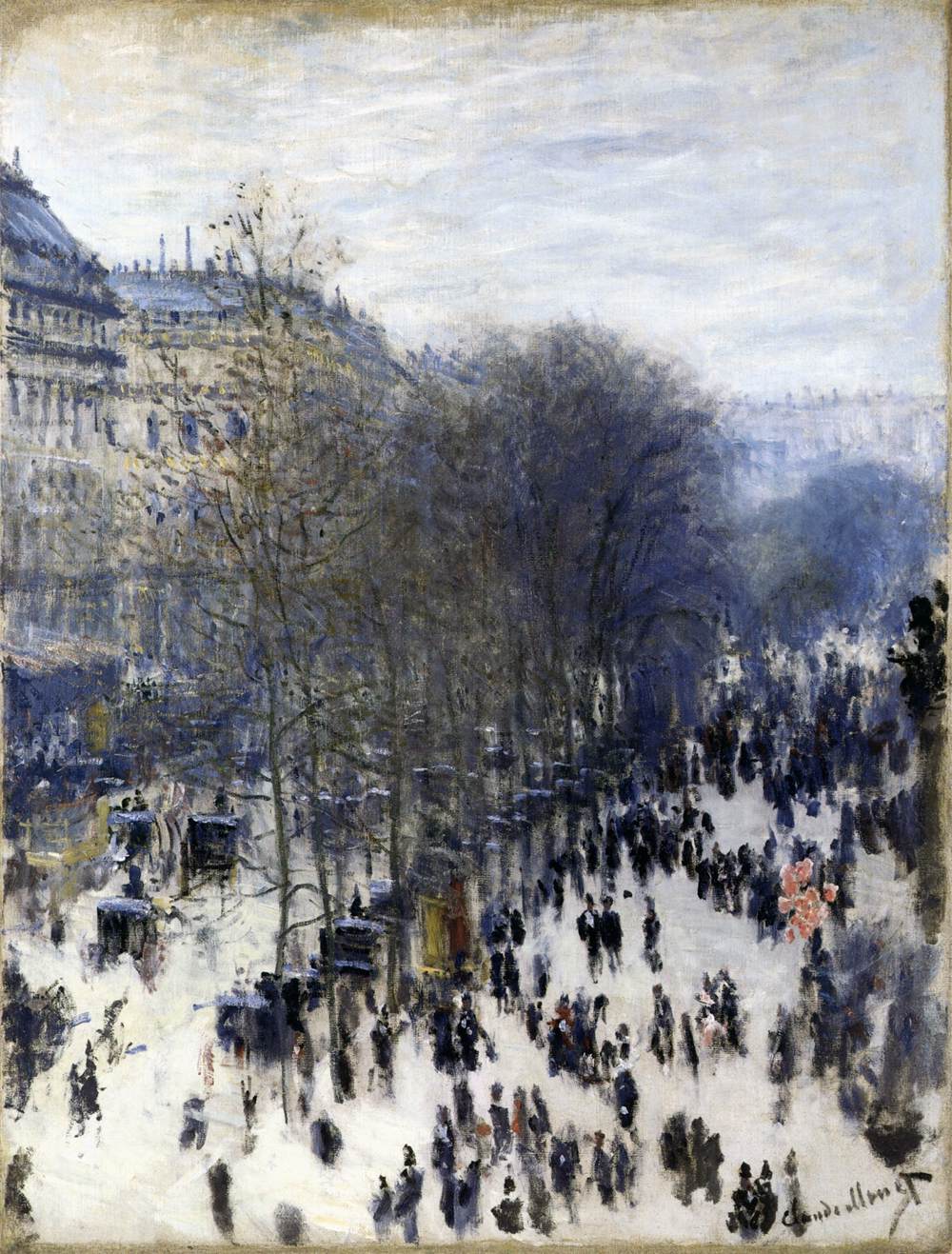Description
Boulevard des Capucines painting by Claude Monet is a masterpiece of Impressionism, an art movement that emerged in France in the 1860s. This painting was painted in 1873, and its original size is 80 x 60 cm.
One of the most outstanding characteristics of this work is its artistic style. Monet was one of the main exponents of impressionism, a movement that was characterized by the representation of light and color in nature. In this sense, the Boulevard des Capucines painting is a perfect example of this artistic philosophy, as the artist managed to capture the atmosphere of the city of Paris on a winter day.
The composition of the painting is another interesting aspect. Monet chose a panoramic view of the city, from a high point, which allowed him to show the daily life of the city as a whole. In the center of the image, you can see the boulevard des Capucines, a main street in Paris that connects the Place de l'Opéra with the Place Vendôme.
Color is another key element of this work. Monet used a bright, vibrant color palette to depict the city's buildings, streets, and passers-by. The blue and gray tones of the sky contrast with the warm colors of the buildings and the people walking down the street.
The history of the painting is also fascinating. Boulevard des Capucines was first exhibited at the second Impressionist exhibition in 1874, where it made a great impression on the public and critics. Since then, this work has become one of the artist's most famous, and is considered one of the most important of the Impressionist movement.
As for little-known aspects, it is known that Monet worked on this painting for several months, and that he made numerous preliminary sketches and studies before beginning the final work. In addition, it is believed that the artist used a technique of loose and rapid brushstrokes to create the sensation of movement and life in the city.
In short, Boulevard des Capucines is an impressive work of art, which stands out for its artistic style, its composition, its color and its history. This painting is a perfect display of Claude Monet's creative genius, and one of the most important works of impressionism.

